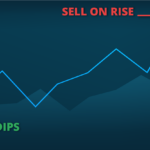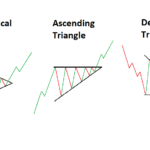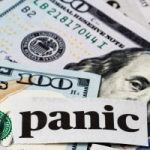The UK is the 6th largest economy in the world, until recently one of the world’s largest exporters, number 2 in incoming foreign direct investmentAn asset (usually money or work) provided to another in expectation of receiving a cash return or be... and number 3 in outgoing foreign direct investments. Twenty-six of the world’s 500 largest companies had their headquarters there, and its currencyA financial medium for the exchange of value. In economics, it is the monetary system employed by a ..., the Pound Sterling, is one of the top-10 valued currencies in the world.
In the 18th Century, Britain was the first country in the world to move from an agrarian to an industrialised economy, and by the late 19th Century, that economy accounted for nearly 10% of the entire globe’s gross domestic product.
By the 1970s, however, lack of innovation, a burgeoning welfare state and the loss of Empire were a fertile ground for the 1973 oil crisis, which dealt Britain an almost death-blow. Despite a (at the time) huge £2.3 billion loan from the IMF, a series of public sector strikes brought the UK economy to its knees, in which positionAn open trade or transaction. A position can be long (a contract to buy the asset) or short (a contr... Margaret Thatcher took over.

Thatcher iron fistedly ruled over a series of privatisations, tax cuts and trade union reforms that resulted in a gradual shift to service-sector dominance.
By the time Tony Blair took over from John Major, unemployment and inflationThe rise in prices for goods and services, resulting in the deterioration of a currency’s purchasi... were healthily low, and the country boasted an impressive current accounts surplusA trade balance that is positive as a result of income (exports on the national level) being greater....
Indeed, Blair’s 10-year tenure was one of uninterrupted GDP growth. However, by this time, the banking sector, which was the most leveraged of any in the world, was immediately susceptible to the 2008 financial meltdown. The year before, the UK’s manufacturing deficitA trade balance that is negative as a result of cost (imports, on the national level) being greater ... placed it at number 3 in current accounts deficits. And, by 2009, Britain had suffered its worst recession since World War 2.
Thanks to extreme government cutbacks, by 2015 employment was back at record highs – though marred by the worst productivity levels in nearly a Century. Exports to the EU had fallen by 7%, though their value had risen, and in 2016, the nation decided to take the inarguably populist step of leaving the European Union – slowing an already laggard economy.
Investing in the UK – a Short History

Strangely, although the British East India Company preceded the Dutch East India Company by several years in issuing the first joint-stock in a public company, it wasn’t until nearly the close of that Century that the London Stock Exchange came into being, a place where those shares could be traded.
Initiated at Jonathan’s Coffee House, one of many such meeting places where stocks were traded (Lloyd’s of London was named after another coffee house used by marine underwriters).
Shortly after, in 1694, the Bank of England was created to help fund the government’s 9-Year War and given a monopoly.
Soon after, regional exchanges were established so that nouveau riche investors – made so by the industrialisation of the national economy – in the north of the land could invest in local enterprises. Still, London dominated thanks to its monopoly over domestic and international government debt securities.
The laying down of communications infrastructure towards the 20th Century enabled cooperation between and eventual integration of local exchanges and London. However, a set of regulations and the amalgamation of banks and railways – the two most predominant issuers – led to the eventual amalgamation of local exchanges into the LSE.
A similar process entailed the competition with other major cities – all crying to become the world’s major financial capital. The banking-centred Dutch system gave way to London’s market-based system when the Netherlands began to decline politically; Paris lost out when Napoleon did; and perhaps the only city to continue vying for centrality was New York. The US city’s dominance was hit hard as the European marketA location or entity where people and entities can negotiate and trade assets of value. developed in the 1950s.
To understand how this and its becoming the world’s financial centre occurred, rests to a large extent upon the special status of the City of London.
How did London Become a Financial Capital

Only one (and not a very large) administrative authority of the 33 that comprise Metropolitan London, The City contains what was an early Roman military settlement, established in 43 BC and swiftly becoming a major port and crossroad thanks to a bridge constructed over the River Thames.
To begin with, whereas the other 32 authorities are boroughs ruled by a council, The City is a ruled by a corporation – the City of London Corporation, which has its own police authority, as well as responsibilities and rights beyond its boundaries.
The Lord Mayor of the City of London has precedence over all other authorities (including the Mayor of London) and is answerable only to the Queen; and it is perhaps this independence that provides The City with its unparalleled freedom in matters such as trade and commerce.
The LSE, the Bank of England, Lloyd’s of London, Unilever and more than 500 banks all converge upon this one square mile (less than 3 KM square), which specialises in bonds, forex, futures and insurance, all together making up for nearly 2.4% of the nation’s GDP.
Add to this, the predominance of precedence-ruled, judicially authorised British Common Law, as opposed to – say – regulation-ruled US markets, this enabling the offshore market in which financial services can be provided to nonresidents to a massive degree.
Plus the fact that the City of London was – at the time – servicing an empire, not a nation, to whose latter needs it was impervious. In fact, to this day, the Bank of England will often (let’s be diplomatic) favour the City’s interestThe cost of accessing money not owned. above those of the Land’s and its economy.
Resulting in often disastrously high-interest rates and overvalued currency, even when the economy and manufacturing was declining.
When in 1979, Britain removed all supervision on forex transactions, effectively deregulating financial markets, the LSE’s daily turnoverThe amount of money received by a company over a period, or the rate at which employees are replaced... quadrupled in less than a decade. Suddenly, the derivatives market also soared, and whatever players had not yet set up shop in London did so swiftly.

By the 1990s, London was the nexus of dozens of trillions of dollars worth of financial transactions each day. But, as mentioned above, whether doing the right thing for the wrong reason or the wrong thing for the right reason, Brexit has taken place and with it a spike thrown into the ever-turning wheel that is London’s financial hub.
And Now – Where do I Invest in the UK?
With most of Britain’s starlit car industry brands long immigrated to other shores, its arms industry in disarray, and manufacturing at an all-time low, is it still safe to invest in the nation’s financial sector? In short, where does one invest today in the UK?
The investinuk.net website continues to list among the top 15 reasons for investing in the UK the speed and ease of establishing a European business, competitive tax laws, innovative lead, stable politics, talent, communications & transport infrastructure and, oh yes, again – European accessibility.
Following its DeutscheBourse debacle in 2018, the LSE recovered quite nicely, merging with the Borsa Italiana, acquiring the Turpuoise and Millenium platforms, and resisting a takeover by Nasdaq. Insofar as alternative markets and electronic platforms, the LSE remains admittedly unmatched in innovation and in offering tailor-made venues for potential listings.
However, does it stand up in comparison to other venues as an investment venue?

Last year’s Motley Fool review indicates that, even at a tenth the market value, FTSE 100 companies offer nearly tripple the dividendA payment by a share issuer to a shareholder derived from the former’s profits. yield of S&P500 companies; however, whereas the S&P has quadrupled in value since 2009, the FTSE has barely doubled. It does little better against the DAX and the Nikkei.
Some ascribe the FTSE’s weakness to the predominance of mining and energy stocks, compared to the DAX’s primarily manufacturing goods makeup. Unfortunately, the FTSE has little scope in attracting a wider range of sectors to the extent required in order to shift the weight.
Thus, even buying index finds in the UK would probably not be a good idea.
Brexit, or The Big Bang Fizzles
One of the major advantages of the European financial Union is that a company regulated by one national authority is automatically regulated in all other member states by a process called ‘passporting’.
Now, whether losing access to an eternally languishing European economy is disastrous or not, the UK’s emergence is being made much of by age-old competitors. Some estimate that since the decision to disengage from European encumbrances, over a trillion dollars in assets have been moved from London to Dublin, Luxembourg, Frankfurt and Paris – all challengers to the golden throne.
Notice, New York is not mentioned, for, although the weight of dominance has shifted from London to New York repeatedly over the last few decades.
Mention of the Big Apple would nowadays require reference to the present gradual shift towards the Far East, primarily Shanghai, Hong Kong (if the Chinese do not obliterate that city’s centrality) and Singapore, which also awaits in the wings for its day or China’s next quasi-colonialism.
Were that to happen, one wonders what London’s position would become – all three potential tigers,remnants of Britain’s historic reach.












